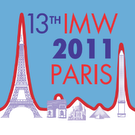Articles tagged with: Secondary Cancer
News»

Last Thursday, the third day of the International Myeloma Workshop (IMW) in Paris, included numerous presentation sessions throughout the day.
The key session during the second part of Day 3, which concerned Revlimid and secondary cancers, is summarized in this article. Highlights from the first part of Day 3 are summarized in a separate article (see related Beacon news).
Secondary Cancers
The most important session of the afternoon included talks from the lead investigators of the three Revlimid (lenalidomide) maintenance trials that reported …
News»
In a session of the International Myeloma Workshop (IMW) today, multiple myeloma experts presented the latest data about the efficacy of Revlimid maintenance therapy and discussed the drug’s potential link to second cancers.
Results from a study conducted by the Cancer and Leukemia Group B (CALGB) showed that Revlimid (lenalidomide) maintenance therapy following stem cell transplantation significantly extends survival of myeloma patients. Two other studies investigating Revlimid maintenance, the IFM 2005-02 and MM-015 studies, have not yet shown a survival benefit.
All three studies, however, have raised concerns that Revlimid maintenance …
News»

The 13th International Myeloma Workshop will take place Tuesday, May 3, through Friday, May 6, in Paris. During the four-day meeting, multiple myeloma specialists from all over the world will discuss the current understanding of the biology and treatment of myeloma.
Additionally, much awaited data about the safety and effectiveness of Revlimid (lenalidomide) maintenance therapy will be presented at the meeting.
The Myeloma Beacon will be covering the event, so readers can expect many articles during the meeting and in the weeks afterward about the key myeloma findings.
The International Myeloma …
News»

The U.S. Food and Drug Administration (FDA) announced last week that it is investigating the safety of the multiple myeloma drugs Revlimid and thalidomide. The Beacon covered this development in an earlier article. More details are provided here about why the FDA is conducting the investigation and the possible outcomes of that investigation. These questions and answers have been developed in consultation with the FDA.
Why is the FDA investigating the safety of Revlimid and thalidomide?
In December, intermediate results from three clinical trials studying long-term use of Revlimid …
News»

The U.S. Food and Drug Administration (FDA) earlier today issued a formal announcement that it is investigating the safety of the multiple myeloma treatments Revlimid and thalidomide.
The investigation is being carried out due to clinical trial results that suggest Revlimid may increase the risk of secondary cancer in patients taking the drug for extended periods of time.
The announcement confirms a Beacon news update last week that reported evidence that an investigation of Revlimid was underway (see related Beacon news).
Today's FDA statement says that the agency is "aware of results from clinical trials ... that have found that patients treated with
News»

There have been several additional developments in the past few weeks related to concerns about a potential link between Revlimid and secondary cancers.
A group of myeloma researchers issued a joint statement on the issue; the European Medicines Agency has begun an investigation into Revlimid’s risks and benefits; and there are subtle signs – but no official confirmation – that the U.S. Food and Drug Administration may be conducting its own investigation into Revlimid and its safety.
As the Beacon announced last week, a group of myeloma researchers has issued a statement …
News»
A group of mainly European multiple myeloma researchers has issued a statement regarding the potential link between Revlimid and secondary cancer.
According to the statement, the group initially met in Paris on February 23, 2011 at a meeting arranged by Celgene, the company that developed and markets Revlimid (lenalidomide).
The group includes 12 well-known multiple myeloma researchers, almost entirely from Europe. Among the group's members are investigators from the CALGB 100104, IFM 2005-02, and MM-015 clinical trials, which are the three trials that last December reported data suggesting a possible connection between …

